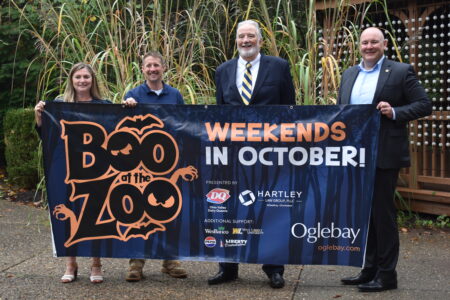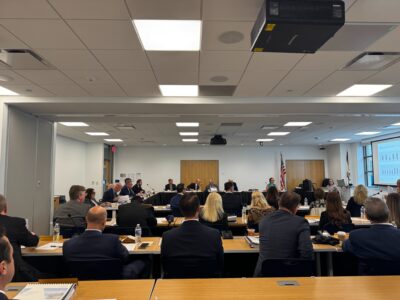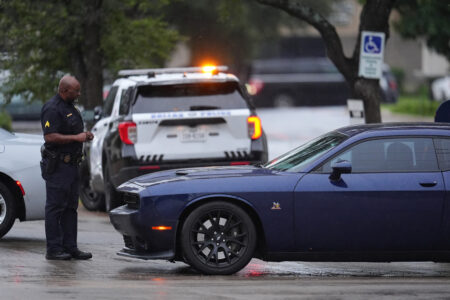Clarification Sought From High Court In Vaccine Case
State Attorneys Want To Know If Equal Protection Act Applies

Photo Courtesy/WV Supreme Court of Appeals Attorneys for the West Virginia Department of Health want the state Supreme Court of Appeals to weigh in on a question that could determine the fates of several lawsuits dealing with religious vaccine exemptions.
CHARLESTON — Does the 2023 Equal Protection for Religion Act give Gov. Patrick Morrisey the authority to use an executive order to allow for religious exemptions to West Virginia’s nearly 90-year-old compulsory vaccine law for school-age children? Attorneys for the state want to know.
The West Virginia Attorney General’s Office filed a motion Monday in Raleigh County Circuit Court asking 14th Circuit Judge Michael Froble to certify a question for the state Supreme Court of Appeals to answer.
The state’s attorneys want the Supreme Court to answer whether the Equal Protection for Religion Act (EPRA), passed by the Legislature in 2023, applies to West Virginia’s compulsory vaccination law and whether it requires the state to offer religious and philosophical exemptions to vaccination.
In her filing, Principal Deputy Solicitor General Holly Wilson said it was important for the Supreme Court to answer the question as other circuit courts begin seeing cases brought by parents wanting their local school systems to accept their religious vaccine exemptions.
“Whether the EPRA applies to the State’s vaccination law and thus requires the State to offer religious exemptions is a legal question,” Wilson wrote. “The Supreme Court of Appeals would not need to resolve any factual inquiries to decide it. And after the Supreme Court of Appeals explains how the EPRA applies, this Court will have clarity on every claim raised by any party to any of the many pending cases touching on vaccine-related issues.”
The Attorney General’s Office is representing the state in a lawsuit filed in Kanawha County in August by two parents with immunocompromised children against the Department of Health asking the court to order the Department of Health to only administer medical exemptions to the state compulsory vaccine law, cease granting religious exemptions and rescind all granted religious exemptions.
That case has since been consolidated with a June lawsuit filed by two Raleigh County parents seeking to prohibit the Raleigh County Board of Education and West Virginia Board of Education from not accepting religious exemptions granted by the Department of Health, following a January executive order issued by Morrisey.
State Code 16-3-4 requires children attending public or private school to show proof of immunization for diphtheria, pertussis, tetanus, polio, measles, mumps, rubella, varicella and hepatitis B unless proof of a medical exemption can be shown.
Executive Order 7-25, issued by Morrisey on Jan. 14, ordered the Bureau of Public Health to establish a process for parents and guardians to seek exemptions on religious or conscientious grounds to the compulsory immunization law, allowing for parents to submit to the bureau a signed letter as sufficient proof.
The state Board of Education voted in June to require State Superintendent of Schools Michele Blatt to issue guidance to county school systems that they follow the compulsory school vaccination law that does not permit religious exemptions. An attempt by Morrisey to codify his executive order with a bill introduced during the 2025 legislative session failed when the House of Delegates voted the amended bill down.
Morrisey cited EPRA, which establishes that the government cannot treat religious conduct more restrictively than activities of comparable risk or due to alleged economic considerations, to justify his executive order.
However, EPRA also mandates that any state action substantially burdening religious exercise must meet a compelling interest test and be subject to strict scrutiny. Previous court cases before the U.S. Supreme Court have ruled that requiring vaccinations and immunizations is a compelling state interest.
While Froble has granted a preliminary injunction prohibiting state and local education officials from not accepting the religious exemptions granted to the two Raleigh County parents, judges in Mineral County and Berkeley County have rejected similar motions, upholding the state’s existing compulsory vaccine law. In her brief, Wilson wrote that settling the question about EPRA could render other lawsuits moot.
“Several of those claims would be resolved entirely; after all, both the Governor’s actions and the Board’s decisions turn on their respective readings of the two statutes,” Wilson wrote. “Certification also provides perhaps the only practical avenue to statewide relief, and statewide relief would be helpful considering how this issue is evolving.
“If the Supreme Court of Appeals decides how the EPRA applies to the vaccination statute, then that decision would drive the outcome of this case and all the others,” Wilson continued. “On the other hand, waiting for each court to simultaneously take a stab at its own interpretation invites chaos.”
Hearings on a permanent injunction continue next month in Raleigh County. Froble’s granting of a preliminary injunction has been appealed to the state Supreme Court by the state Board of Education.





